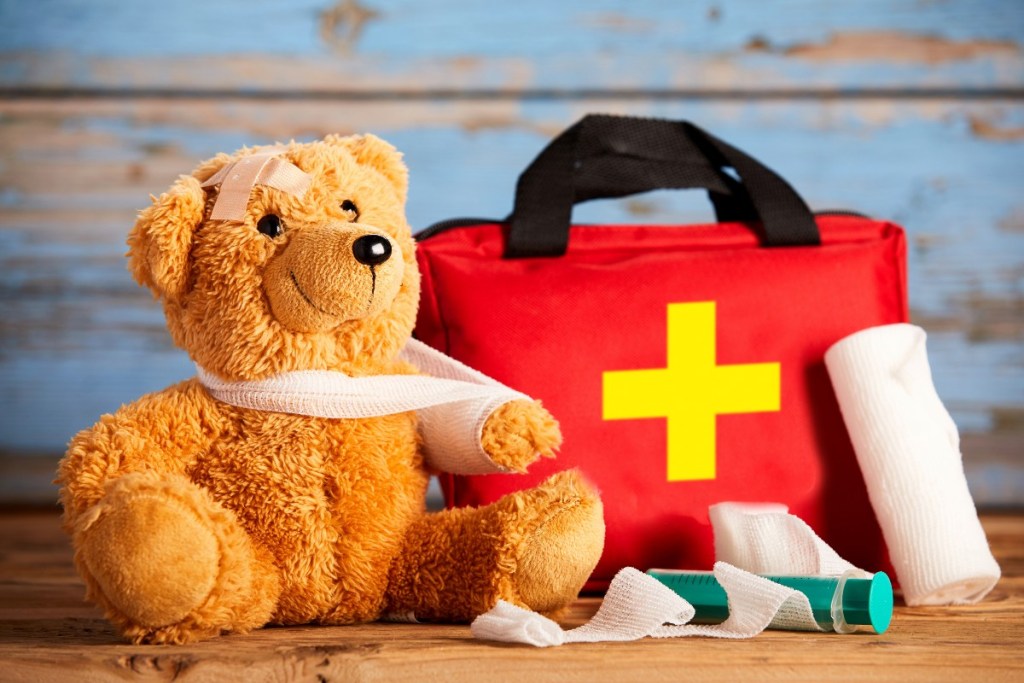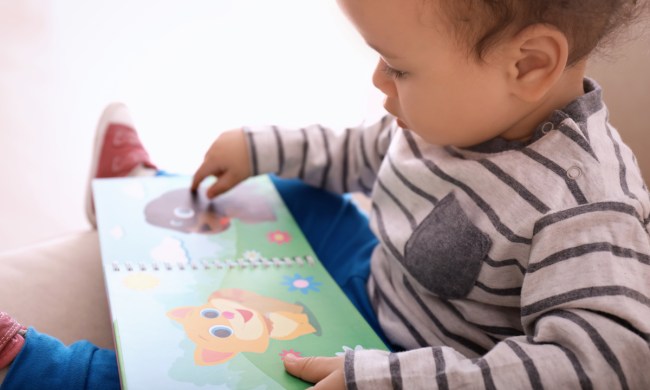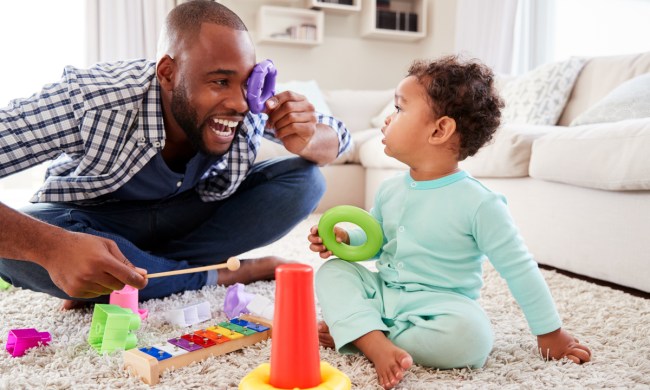It’s scary when a baby falls off the bed, but once you’ve read this article, you’ll be prepared to know what to do if it does happen. The bottom line is that if they seem fine (they are active, consoled, and playing minutes after the fall), there is probably no cause for concern. However, there are several important signs to watch for to make sure they’re okay and have not been injured. Here’s what to do if your baby falls off the bed.

What should I do first if my baby falls off the bed?
Your first instinct will be to pick them up and console them, but you should actually look to see if they have any warning signs of a serious injury before moving them. If you pick them up when their head, neck, or spine is hurt, you could make it worse. As hard as it is to not scoop them up, you need to check for red flags first. You can still speak to them in a soothing voice and be close to provide some comfort. Your smell and voice will go a long way.
What are the warning signs of serious head injury to look for?
Your baby will almost certainly cry if they fall, but is it just because they are startled or experiencing minor, temporary pain, or is this an emergency for the ambulance? If you see any of these signs, call 911 right away:
- Loss of consciousness (even if they wake right back up)
- Vomiting
- Blood or other fluid coming out of anywhere on the head
- Swelling of the soft spot on the top of their head
- Bruising or swelling on their head
- Seizure
- Abnormal breathing
If any of these are the case, pediatrician Dr. Ei Ye Mon says it could be a head trauma: “It’s possible that they’ve also injured their neck or spine, and you don’t want to possibly worsen the injury by moving them.”
Pick them up as soon as you see they are conscious and don’t have any signs of serious head trauma. If they aren’t consoled after you pick them up, that’s another red flag to go to the hospital.

How long until we’re in the clear?
Monitor your baby closely for 24 hours for any of the symptoms above: “Usually, once you’ve passed that 24-hour mark, it’s safe to say that anything scary is less likely,” Dr. Ye Mon says. Look for lethargy and anything out of the ordinary like eating or sleeping more or less than usual or crying a lot.
You don’t need to try to keep them awake after the fall– it’s natural that they’ll want to sleep to recover. But if any nap in the next 24 hours is going long, try to wake them to make sure you can. If you can’t easily wake them, call 911.
Anything out of the ordinary over the next 24 hours can warrant a trip to the pediatrician, even just extra fussiness.
Trust your instincts
If your gut says to go get them checked by the pediatrician, do it. It’s better to be on the safe side even if your baby isn’t showing any signs of distress. If anything at all seems off, that’s a reason to make the appointment. You don’t have to if you’re not concerned, but if your instincts are saying to go, don’t fight them.
Prevent the next time
Falls make up over 50% of nonfatal injuries in children under a year old. It’s a common occurrence between changing table mishaps and learning to roll over for the first time in an unexpected place.
Children over a year old bump their heads a lot, and it’s less of a concern than when it happens to an infant since their skulls are softer and not fully formed. Dr. Ye Mon says, “the younger they are, the more dangerous it is for a serious head injury, no matter the mechanism of the fall or how high it is.”
Don’t let babies sleep outside of their crib or bassinet and keep bouncy chairs on the floor instead of the table, for example. Even if your child isn’t injured in the fall, it’s not a stress you want to put yourself through so stay cautious.
And if it does happen, don’t guilt yourself. Accidents happen! By knowing what to do when your baby falls off the bed, you’ll be best prepared to ensure they’re treated promptly and appropriately.



